A Guide for Community Leaders
Edited by David B. Allison
Besides seeing my essay on Confederate monuments in print at the 2018 American Association for State & Local History (AASLH) conference, one of my great pleasures was meeting historian David Allison, editor of the new book Controversial Monuments and Memorials. Recently released, it features my essay on Confederate Memorials “Choosing Futures for Our Past: A Veteran’s Perspective”—an essay that brought back many memories.
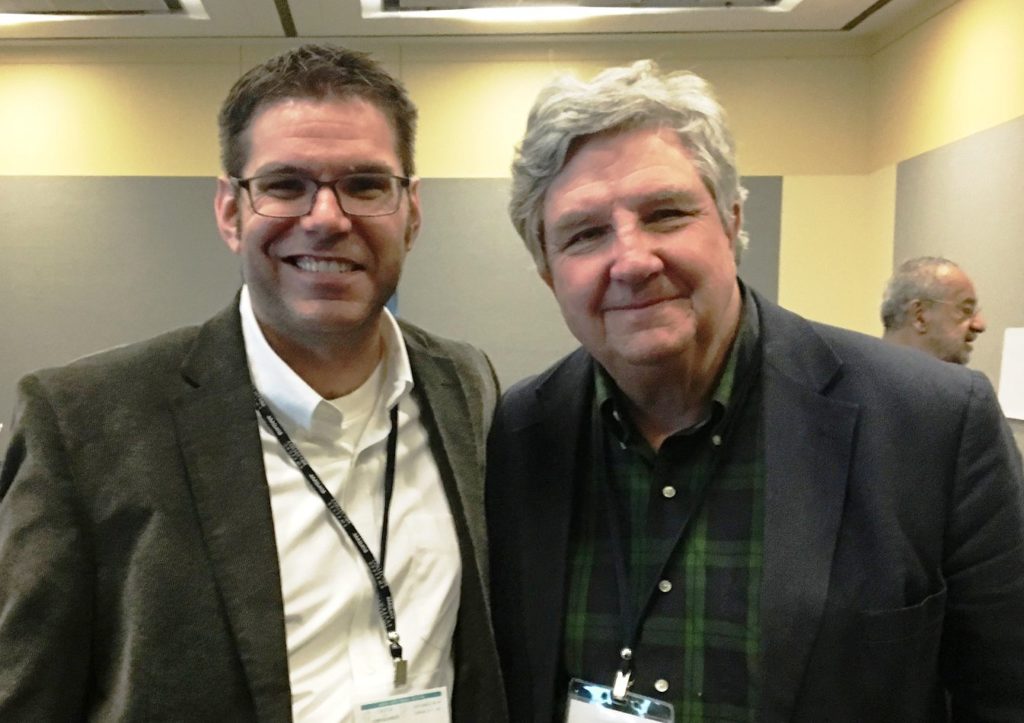
With David Allison, editor of Controversial Monuments and Memorials
I’m sometimes asked why I go to the AASLH conference and one reason that I always give is that it’s great to see old friends and make new ones.
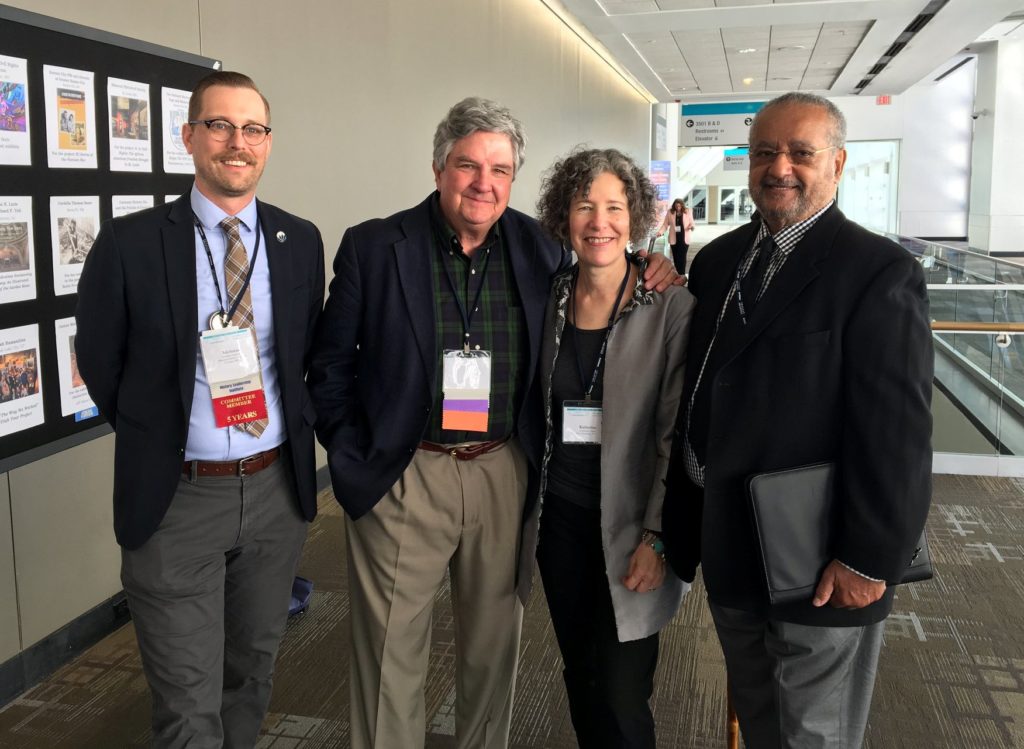
Congrats to Katherine Kane, outgoing chair, and John Fleming, new chair, of AASLH’s Council, seen here with Nicholas Hoffman on my right.
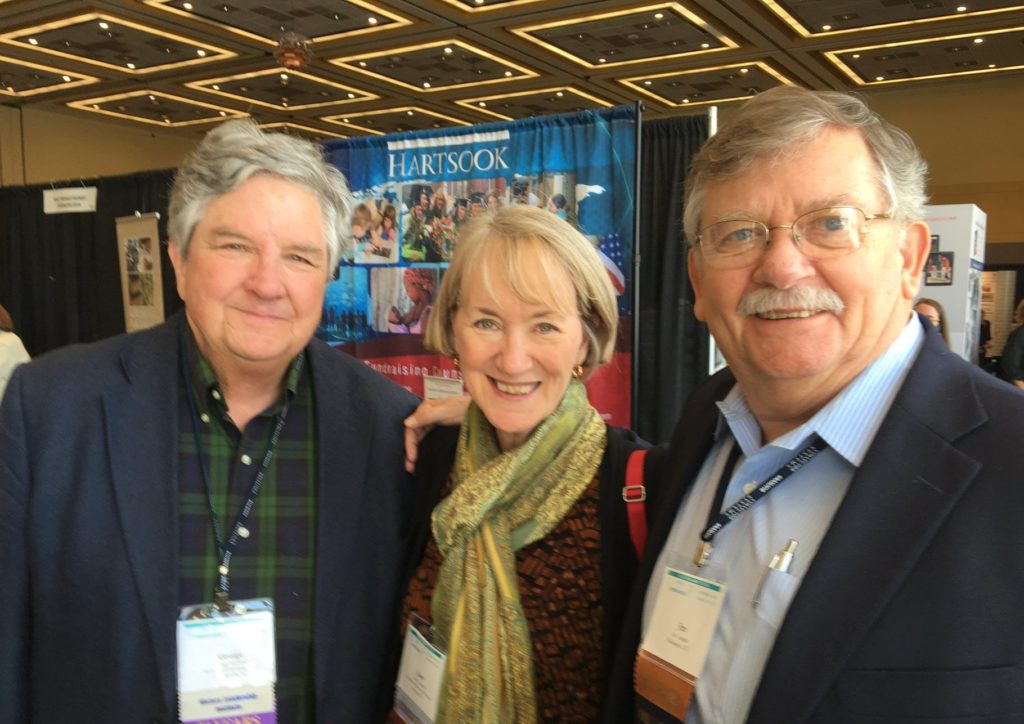
With Janet and Jim Vaughan
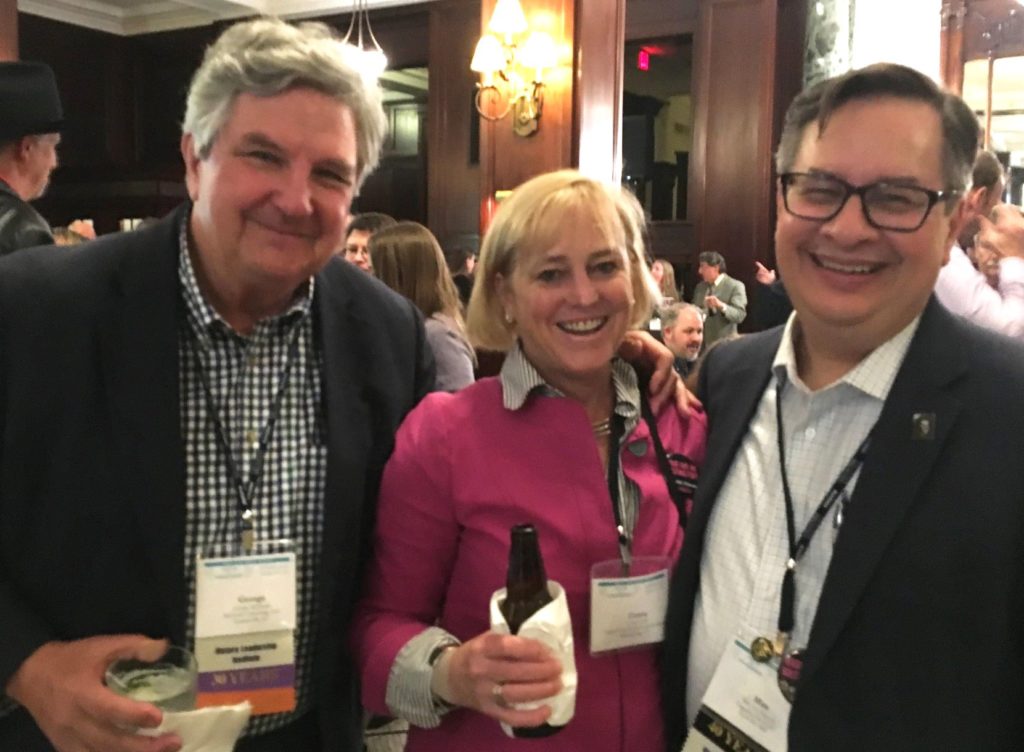
With Conny Graft and Max Van Balgooy
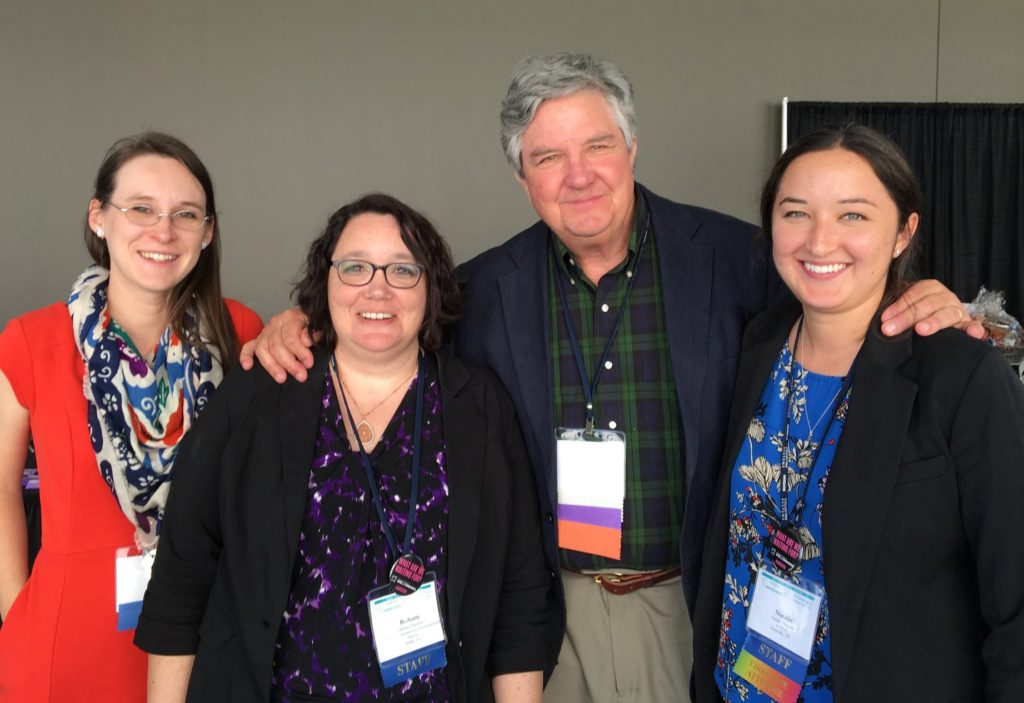
With Aja Bain, Bethany Hawkins, and Natalie Flammia
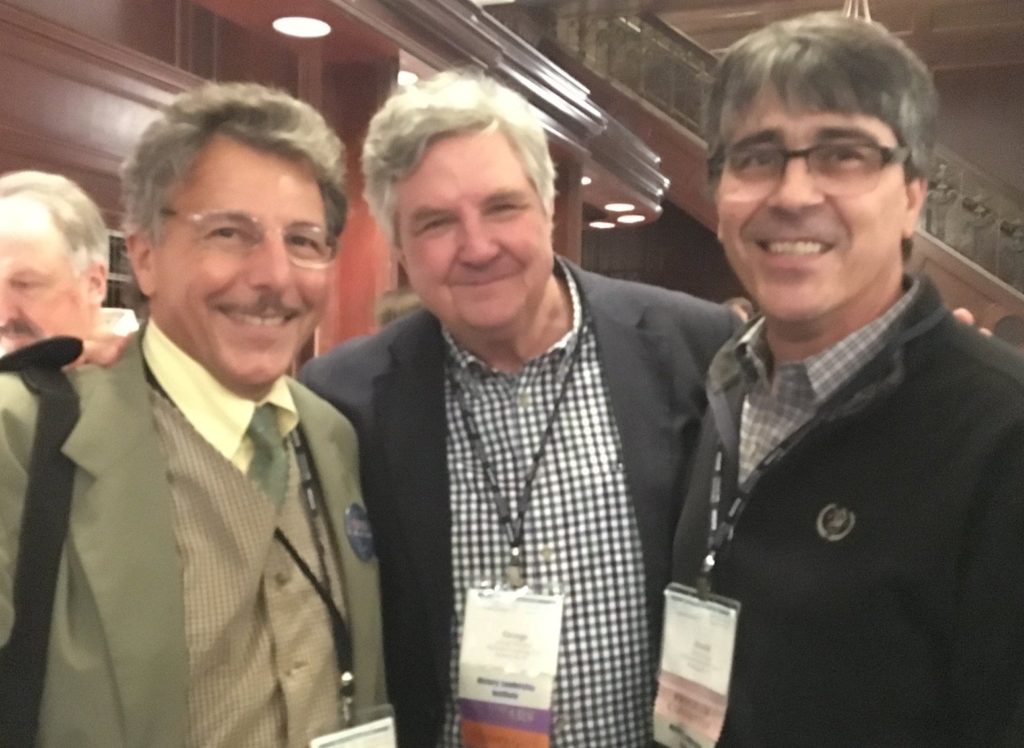
With Ken Turino and David Young
More about the new book as described by its publisher Rowman & Littlefield:
“Out of the chaos and pain of Charlottesville, museum professionals, public historians, and community leaders must move quickly to face the challenges of competing historical memory, claims of heritage desecration and the ongoing scourge of racism. This book takes on the tough issues that communities across America—and analogous locales overseas—must face as white supremacy, political quagmires and visions of reconciliation with the past collide.
“The events of summer of 2017 that culminated in Charlottesville are outgrowths of ongoing dialogues and disputes about controversial history that encompass numerous historical situations and touch every part of US history. Strategies for working effectively with communities will be explored, and the book will delve into the ways that other countries have attempted to overcome their painful pasts. In addition, this book will highlight essays and case studies from numerous museum professionals, scholars and civic leaders as they grapple with the past they interpret for their visitors.
“The book will be framed by questions that help museum community leaders make sense of the competing historical narratives and political machinations that drive the current controversy around monuments and memorials—
- How and when do you remove an offensive monument? Hint: It’ll take more than a screwdriver….
- How can we be intentional about contextualizing the history and the motivations for building monuments for our visitors?
- How can communities be responsive without forsaking the historical record?
“Here is a guide to collective introspection, awareness of our own biases, and thoughtful community responsiveness which are the tools that will make this engagement meaningful and lasting.”
As the professional association for history practitioners and institutions throughout the country, AASLH takes on a major role providing leadership and advocacy for the history field. By building coalitions around key issues, developing and monitoring best practices for the field, and advocating on behalf of the history community with public officials at the national, state, and local levels, AASLH strives to advance the field and to better position history as a critical component of American life.
 George W. McDaniel, Ph.D., is President of McDaniel Consulting, LLC, a strategy firm that helps organizations use history to build bridges within itself and to its broader constituents. The company’s tag line, “Building Bridges through History,” is grounded in McDaniel’s personal beliefs and his experience in site management, preservation, education, board development, fundraising, and community outreach. Rather than using history to divide us, he strives to help organizations use history, especially local history, to enhance cross-cultural understanding and to support local museums, preservation, and education. Dr. McDaniel recently led volunteer efforts with Emanuel AME Church and historical organizations in Charleston to use historic preservation to enhance racial reconciliation and healing. McDaniel is also the Executive Director Emeritus of Drayton Hall, a historic site in Charleston, SC, owned by the National Trust for Historic Preservation.
George W. McDaniel, Ph.D., is President of McDaniel Consulting, LLC, a strategy firm that helps organizations use history to build bridges within itself and to its broader constituents. The company’s tag line, “Building Bridges through History,” is grounded in McDaniel’s personal beliefs and his experience in site management, preservation, education, board development, fundraising, and community outreach. Rather than using history to divide us, he strives to help organizations use history, especially local history, to enhance cross-cultural understanding and to support local museums, preservation, and education. Dr. McDaniel recently led volunteer efforts with Emanuel AME Church and historical organizations in Charleston to use historic preservation to enhance racial reconciliation and healing. McDaniel is also the Executive Director Emeritus of Drayton Hall, a historic site in Charleston, SC, owned by the National Trust for Historic Preservation.
A frequent writer, speaker, and facilitator about such issues, he can be reached at gmcdaniel4444@gmail.com or through his website at www.mcdanielconsulting.net.
Header Image: Controversial Monuments and Memorials, courtesy of Rowman & Littlefield
All other images courtesy of the author unless otherwise noted.
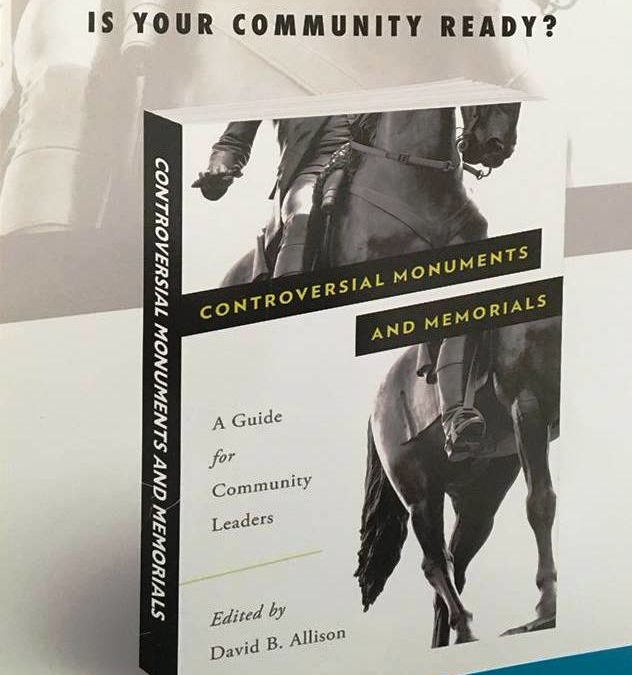
 McDaniel Consulting LLC is a strategy firm that helps organizations use history to build bridges within itself and its broader constituents.
McDaniel Consulting LLC is a strategy firm that helps organizations use history to build bridges within itself and its broader constituents.